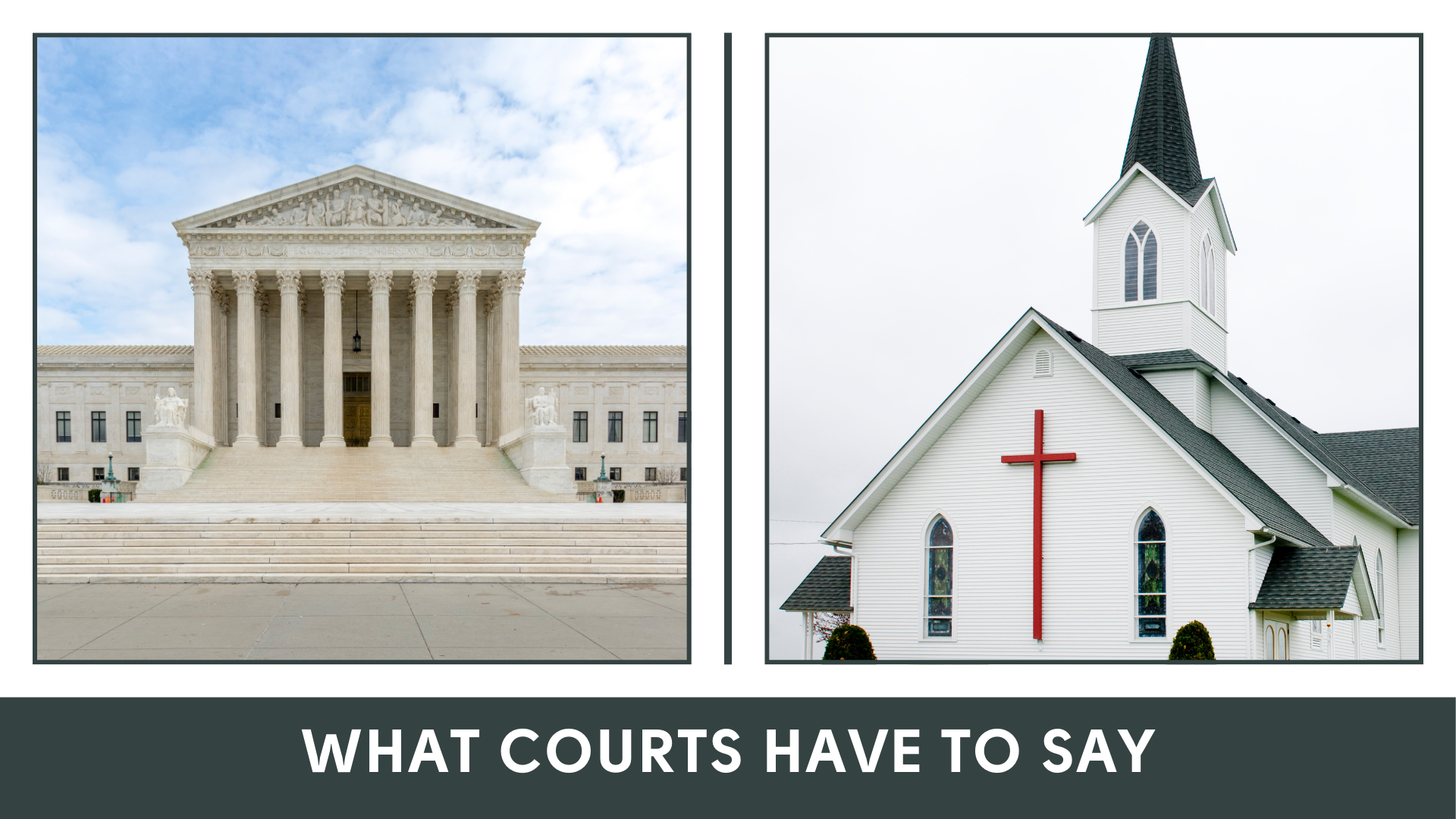The Future of Church Tax Exemptions
By Raul Rivera

In August 2024, a federal court ruled that laws granting tax-exempt status to churches, ministries, and religious institutions are constitutional. This case involved religious universities and addressed whether they could retain their tax exemptions while holding to beliefs that some claimed conflicted with anti-discrimination laws. The court’s ruling clearly upholds the constitutionality of these laws and reinforces the protections for religious institutions under existing legislation.
For church leaders, this ruling is a crucial reminder of the importance of understanding the legal foundation behind tax-exempt status. While tax laws that grant tax-exempt status are constitutional, it’s essential to remain compliant with the regulations that govern them. Let’s take a closer look at what this ruling means for your organization and the steps you can take to safeguard your tax-exempt status.
Why Did the Hunter Case Go to Trial?
The Hunter case was brought to court as part of a challenge to the Title IX exemption. This exemption allows religious universities to follow their beliefs, even if those beliefs lead to policies about gender and sexuality that some may view as discriminatory. Essentially, the plaintiffs argued that allowing religious institutions to continue these policies while receiving federal benefits like tax exemptions constituted government endorsement of religious discrimination.
The court, however, leaned on historical precedents, especially those discussed in the Kennedy v. Bremerton ruling, to uphold the exemptions. The reasoning is simple: tax exemptions for religious organizations have a long history in American law. As long as these exemptions are enacted through proper legislative channels and align with historical practices, they remain constitutional. Don’t stop reading here. There is a broader point I am making.
What It Means for Religious Organizations
Many churches mistakenly believe they are immune to tax laws because they think their tax-exempt status is a constitutional right. This misunderstanding is especially common among churches that have joined the 508 movement, where they are often told that tax laws do not apply to them if they claim constitutional immunity. However, this belief is incorrect. Churches that hold out as immune to tax laws risk losing their tax-exempt status. If they are found to be out of compliance with section 501(c)(3), they may face significant penalties, including retroactive revocation of their status and back taxes.
The Hunter case highlights the constitutionality of laws that grant tax-exempt status to religious institutions. While the court focused on upholding these exemptions, it’s crucial for churches and ministries to understand that compliance with these laws is essential. As religious organizations, it’s up to us to make sure we are familiar with the legal requirements that govern tax-exempt status and to operate within those boundaries.
Other Key Court Cases That Affect Churches
Let’s review other court rulings impacting how churches and ministries might approach their tax-exempt status.
In Bostock v. Clayton County (2020), the Supreme Court ruled that Title VII of the Civil Rights Act protects employees against discrimination based on sexual orientation and gender identity. Many have raised the question of how this ruling applies to religious organizations. The Supreme Court also pointed out that the Religious Freedom Restoration Act (RFRA) acts as a "super statute." This means that RFRA can override other federal laws, including Title VII, in cases where religious practices are substantially burdened.
The Fifth Circuit’s ruling in Braidwood Management v. EEOC (2023) also played a significant role. In this case, the court ruled that religious and Non-religious employers have the right to follow their religious beliefs, even when they conflict with anti-discrimination protections. This ruling emphasizes that religious freedom can take precedence over certain anti-discrimination laws.
Another landmark decision, Carson v. Makin (2022), ruled that states cannot deny public funding to religious schools simply because they provide religious instruction. This case supports the argument that religious institutions must receive equal treatment under the law when it comes to tax exemptions and public funding.
The Freedom From Religion Foundation's Arguments
One organization that has consistently challenged the tax-exempt status of religious institutions is the Freedom From Religion Foundation (FFRF). The Hunter ruling further solidifies that the courts are not swayed by arguments that claim religious tax exemptions violate the Establishment Clause. These exemptions are viewed as a historical practice that reduces government entanglement with religion rather than promoting it. Still, it’s important to recognize that while challenges may persist, the courts have continuously upheld these exemptions.
Got 501(c)(3) Status a Long Time Ago? Time for a Checkup!
If you obtained your 501(c)(3) status years ago, it might be time to revisit your documentation. Many churches have outdated bylaws or may have lost their original IRS approval letter. Others may not be operating in full compliance with current laws. This is where our GetRIGHT program comes in. Whether you need to update your bylaws, retrieve lost documents, or simply ensure that your church is in compliance, we’re here to help you GetRIGHT.
We are a New Church
If you are a new church or are about to launch soon, it is always best to obtain 501(c)(3) status before your first service or within your first year of launching. It is much easier to tell the IRS what your church plans to do and what your budget will look like than to try and retroactively explain your past activities and financials. At StartCHURCH, we help churches get their 501(c)(3) status approved by walking through every step—from your articles of incorporation to obtaining a tax ID, creating bylaws that reflect today’s legal realities, and even creating ordination programs. We make sure you start on solid ground.
Give us a call at 770-638-3444, and let’s make sure your church is set up for long-term success!

